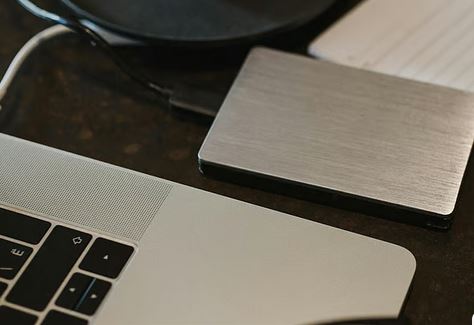The demand for external storage devices to store additional information on a computer or laptop is increasing day by day. The two most common solutions in the market are USB flash drives and external hard drives. Although the names are different, both connect to the device via a USB interface to store information. However, there are several differences between them in terms of use, advantages and disadvantages, and reliability.
USB Flash Drive
USB flash drives are also known as pen drives or thumb drives. This small and easily portable device uses flash memory modules. There are no mechanical parts inside. As a result, they do not suffer any damage even if they are dropped or hit. Although it is a simple solution for fast data exchange, it lags behind in long-term reliability. Each time new information is written, the memory cells start to deteriorate. This problem is exacerbated by the lack of advanced wire-leveling technology in low-cost drives. Another limitation is that flash drives of more than 2 terabytes are usually not available. Even if they are available, the price is very high.
External Hard Drive
Large external hard drives usually have to be connected with a separate cable. They store data using magnetic disks or platters. Since there are mechanical parts inside, the risk of accidental damage is high. However, when considering the price and storage benefits, hard drives are far ahead. Well-known brand drives can provide up to 28 terabytes of storage, which is beyond the reach of flash drives. However, large storage devices cannot be powered by USB alone. Additional power connections are required. As a result, portability is somewhat limited.
Speed and reliability
The speed of data transfer depends on the version of USB and the quality of the device. Flash drives on the same generation of USB ports are usually faster than hard drives. This is because it takes extra time for hard drives to rotate the disk and move the read/write head. However, hard drives are ahead in terms of reliability in the long term. They are designed to read/write data repeatedly and store data for a long time. On the other hand, flash drives have limited write capacity. Each time new data is added, the memory cells start to deteriorate. This problem is especially more common in low-cost drives that do not have advanced wire-leveling technology.
Which is suitable
If you need a small, easily portable, and fast data transfer, then a USB flash drive is suitable. However, if you need reliable large storage, an external hard drive is better. Hard drives are also relatively affordable in terms of price.
Third solution: External SSD
External SSDs are also a fast and durable solution due to the use of flash memory. They are reliable in the long term and offer up to 8 terabytes of storage. However, the price is relatively high. They are mainly used for professional or large data storage.
Source: BGR.com
Get real time update about this post category directly on your device, subscribe now.
